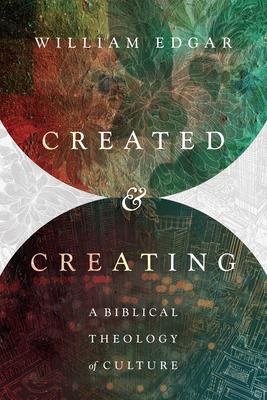The gospel of Jesus Christ is always situated within a particular cultural context. But how should Christians approach the complex relationship between our faith and our surrounding culture?Should we simply retreat from culture? Should we embrace our cultural practices and mindset? How important is it for us to be engaged in our culture? And how might we do that with discernment and faithfulness? William Edgar offers a rich biblical theology in light of our contemporary culture that contends that Christians should--indeed, must--be engaged in the surrounding culture. By exploring what Scripture has to say about the role of culture and by gleaning insights from a variety of theologians of culture--including Abraham Kuyper, T. S. Eliot, H. Richard Niebuhr, and C. S. Lewis--Edgar contends that cultural engagement is a fundamental aspect of human existence. He does not shy away from those passages that emphasize the distinction between Christians and the world. Yet he finds, shining through the biblical witness, evidence that supports a robust defense of the cultural mandate to "be fruitful and multiply, and fill the earth and subdue it" (Genesis 1:28). With clarity and wisdom, Edgar argues that we are most faithful to our calling as God's creatures when we participate in creating culture.IVP Instructor Resources forthcoming

Created and Creating: A Biblical Theology of Culture
The gospel of Jesus Christ is always situated within a particular cultural context. But how should Christians approach the complex relationship between our faith and our surrounding culture?Should we simply retreat from culture? Should we embrace our cultural practices and mindset? How important is it for us to be engaged in our culture? And how might we do that with discernment and faithfulness? William Edgar offers a rich biblical theology in light of our contemporary culture that contends that Christians should--indeed, must--be engaged in the surrounding culture. By exploring what Scripture has to say about the role of culture and by gleaning insights from a variety of theologians of culture--including Abraham Kuyper, T. S. Eliot, H. Richard Niebuhr, and C. S. Lewis--Edgar contends that cultural engagement is a fundamental aspect of human existence. He does not shy away from those passages that emphasize the distinction between Christians and the world. Yet he finds, shining through the biblical witness, evidence that supports a robust defense of the cultural mandate to "be fruitful and multiply, and fill the earth and subdue it" (Genesis 1:28). With clarity and wisdom, Edgar argues that we are most faithful to our calling as God's creatures when we participate in creating culture.IVP Instructor Resources forthcoming